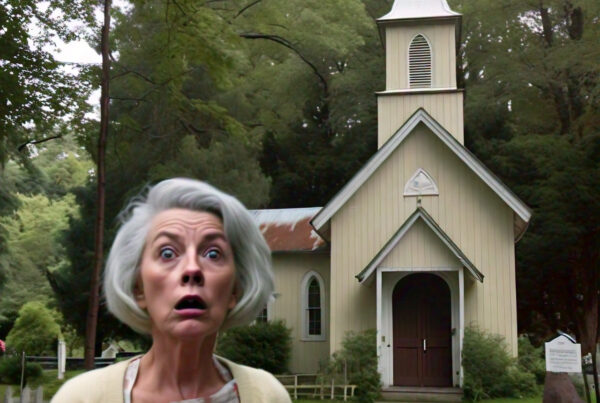
I grew up in a staunchly egalitarian tradition, a term I never heard until my early 30s because the role of women in the church was never a conversation. It was as settled in our church as using Welch’s grape juice for communion. My grandmother, the first in my family to follow Christ, was saved in a revival led by two Pentecostal women. She later was an ordained pastor in the Assemblies of God. I knew women who preached, women who pastored churches, and women who had major leadership positions in local churches. It never occurred to me that my grandmother, as well as all these other women, were evil Jezebels from the pits of hell. They just seemed like women who loved Jesus and followed their calling to exercise their spiritual gifts in the context of the local church.
The male leaders were a lot more focused on the admonition that an elder be the husband of one wife than the idea that an elder had to be a man. (I get the irony.) Divorce of a pastor in the tradition I grew up in was the unpardonable sin. If you wanted to be a pastor you could be a woman, or you could kill your spouse, but God forbid you’d ever been divorced. Its interesting the narrow interpretations of scripture we fixate on.
The biggest contradiction, however, was the dearth of woman in leadership. There were women who preached, pastored, and led, but they were extremely rare. Even though our theology clearly opened the door for women to lead, almost none walked through. Ours was a chauvinistic form of egalitarianism. Sure, women could lead, but why would we want them to? It was just so much easier to keep it a good old boys club.
Which brings me to my point, (“Finally!”) women leading in the church is not as much a complementarian vs egalitarian theological challenge as it is a challenge of intentionality. Almost no one argues that God precludes women from leading in any role in the local church, and yet women continue to be in the vast minority in the church leadership circles I am involved in. Male leadership is what we grew up with, its what we are comfortable with, and it is what our church culture is built on. As one pastor told me, “Inviting women to the leadership table would just change how we communicate.” Exactly.
I see three major challenges with this kind of lazy approach to women in leadership. First, we are keeping 50% of the leaders God has gifted on the sidelines. If Paul found women leaders indispensable in his ministry (Romans 16), so should we. The second challenge is the need for women’s voices in the decisions we make as church leaders. Women bring unique perspectives, and we make uniformed decisions without them. (Running something past your spouse is not the same as discussing an issue with leaders around a table.) Finally, we will continue to lose the next generation if we preclude women from leadership. Regardless of their theology, younger leaders cannot relate to a world that hinders women leaders.
I am not advocating anyone change their stance on who can preach, who can be called a pastor or an elder, or who can lead a local congregation. If Jesus intended us to spend the amount of time on we waste on those arguments, I am sure he would have mentioned it. My point is that we are robbing women and the church when we do not focus on intentionally developing female leaders in our churches.
We recently sat down with Kadi Cole to discuss how pastors of all theological bents can better develop women as leaders in their church. You can hear that episode of the Surratt Brothers Podcast here.


